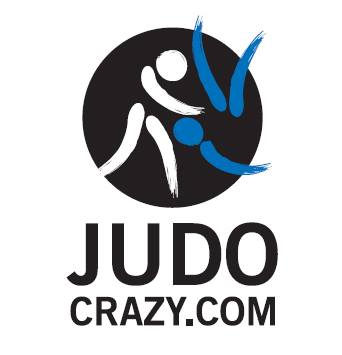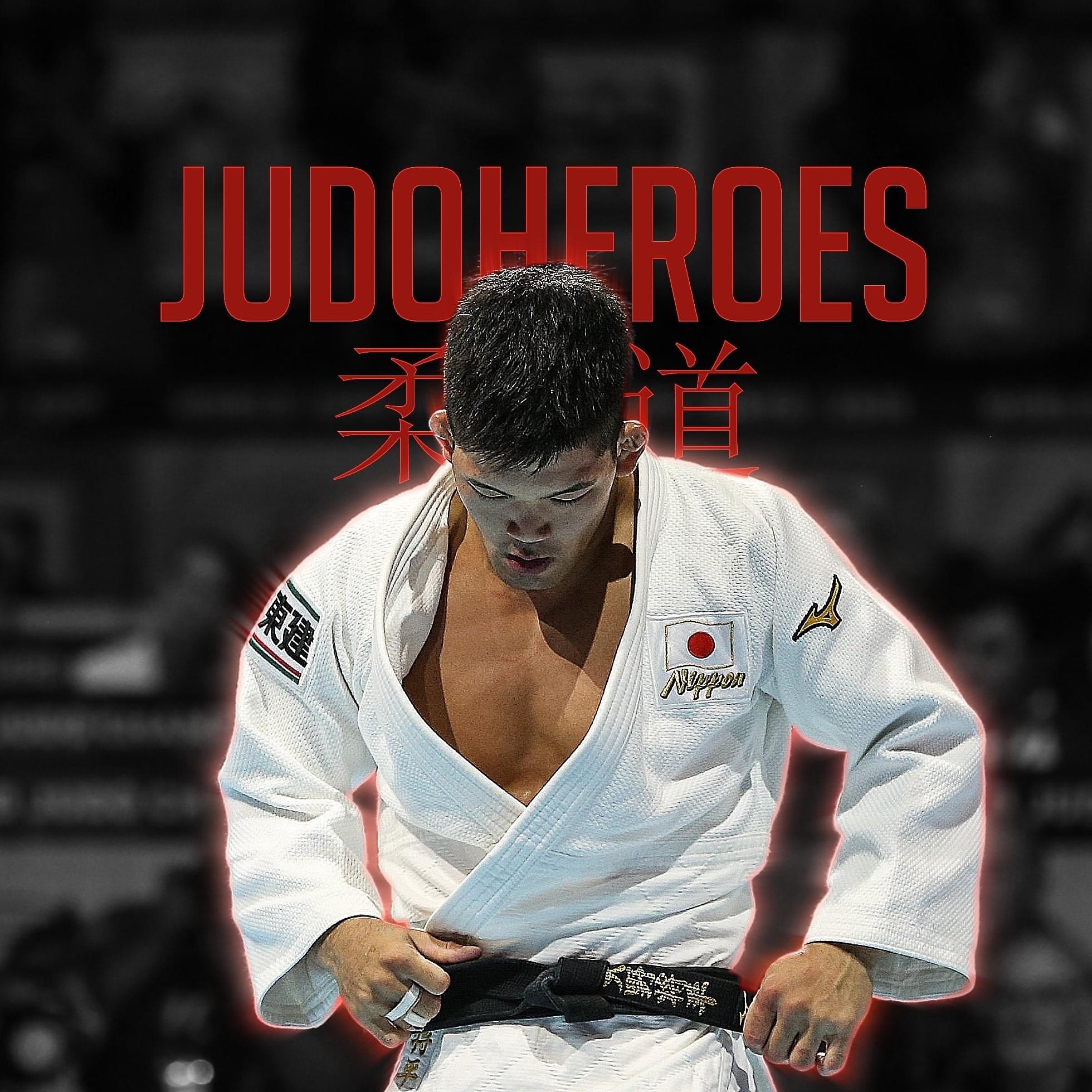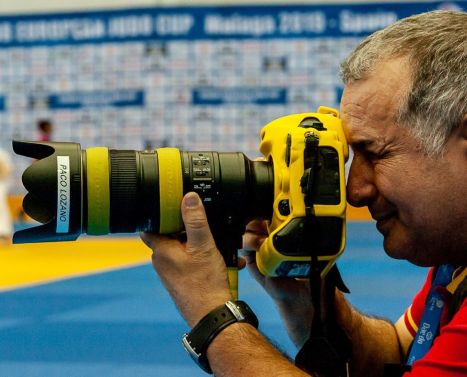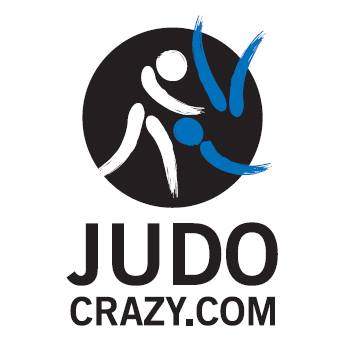Judo in the time of Covid-19: Theresa Stoll
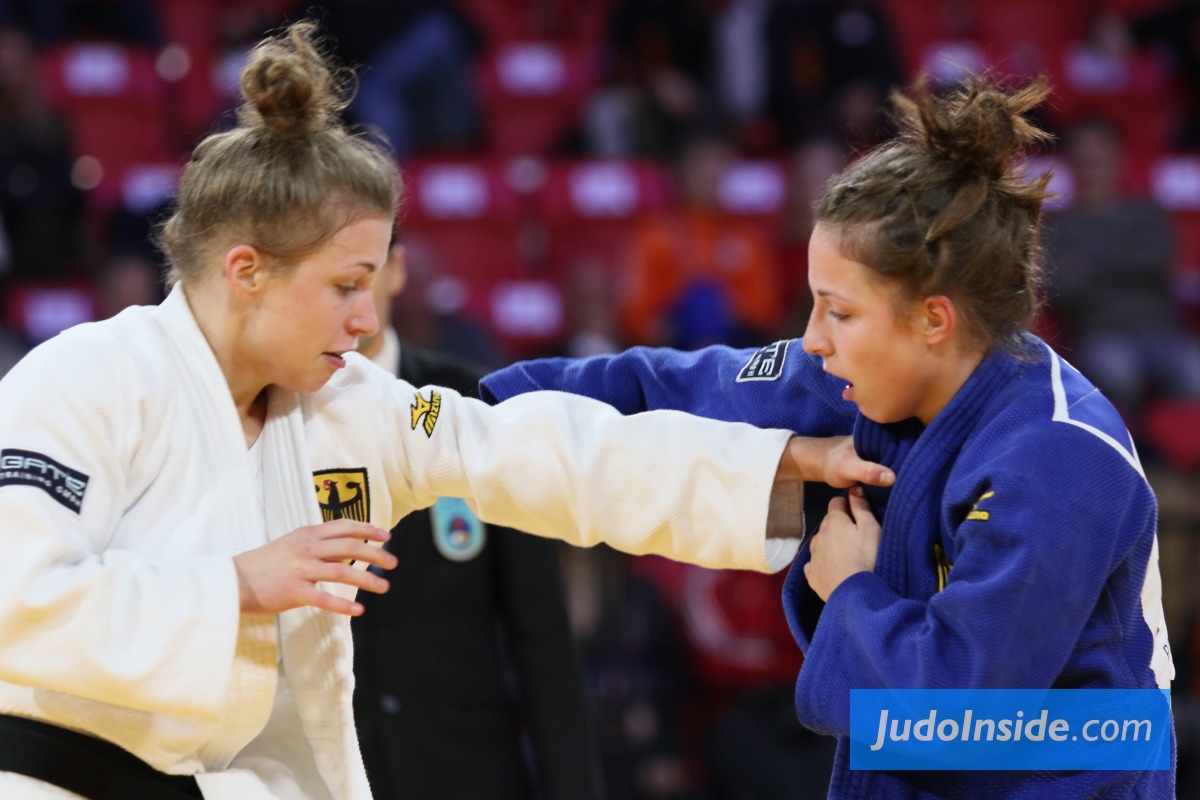
 25 Apr 2020 15:35
25 Apr 2020 15:35
 JudoCRazy by Oon Yeoh
JudoCRazy by Oon Yeoh
 JudoInside.com - Hans van Essen / judo news, results and photos
JudoInside.com - Hans van Essen / judo news, results and photos
German judoka Theresa Stoll is the youngest of the German twins. Amelie reminds her sister often she’s older. Both have the same ideas, both are successful but they also both want to qualify for the Games and met quite a few times. Theresa is so far the most successful and she is the youngest German winner in Düsseldorf. She balances judo and her training with her study. It seems a healthy combination. Without both life is different. JudoCrazy’s Oon Yeoh asked Theresa all about her situation.
JIC: You had already qualified for the Olympics by the time the decision was made to postpone it. How do you feel about the delay?
TS: When I first heard about the postponement of course I was a bit frustrated. I’ve been training so hard to be in the best shape for this summer and now I have to wait one year longer. However, I do feel that given situation with the Covid-19 pandemic, it is the right decision. I try to look at this as an opportunity to be in even better shape by next summer.
JIC: During this time of lock-down are you training with your twin sister at home?
TS: I’m so lucky to have my sister Amelie during this time. We have a training plan from our national coach which includes a lot of physical and endurance sessions, but also some judo technical training.
JIC: Is Amelie your identical or fraternal twin?
TS: We are fraternal twins and Amelie is 23 minutes older than I am — something she’s always reminding me about! Although we are not identical twins, we do have a lot of common interests, as well as similar views when it comes to things like ambition, honesty and conscientiousness. Our personalities however are quite different. I would say my sister is calmer and more patient than I am. I am more emotional and I tend to wear my heart on my sleeve.
JIC: Being that she is the same weight class as you are, does it feel weird having to compete against your own twin, especially for a place in the Olympics?
TS: We’ve been training together since we started judo, so for us it’s kind of normal to fight each other. That said, doing randori together and competing against each other are quite different things. Vying against each other for that one spot in the Olympics is quite a tough thing for sisters to do but going to the Olympics is a dream for both of us, so we just have to do it and accept than only one will end up going.
JIC: Was there ever any consideration for your sister to either drop down or move up a weight, since you are the more higher-ranked player in your weight?
TS: Of course, this is something we thought about quite a lot. Unfortunately our weight is almost the same. For her to drop down to -52kg would be nearly impossible, and to move up a weight just wouldn’t make sense because she’s not very tall even for her current weight class.
JIC: I understand that you and your sister have very different gripping styles.
TS: Yes, Amelie prefers close-quarter fighting where she pulls her opponent in close to her. In contrast, I like to keep my opponents away and control the distance until it’s time to attack.
JIC: Which club do you belong to and do you have enough randori partners there?
TS: My home club is TSV Großhadern in Munich. It’s the city where we grew up in. We’re lucky because it happens to be one of the Olympic Training Centres. That means to do high-level training, we didn’t have to switch to another club or move to another city. In fact, ours is one of the biggest Olympic Training Centres in Germany. My club coach, Lorenz Trautmann, is also the national coach for the women’s junior team, so we also have a lot of young female talents in our group. The senior training group is rather small but if you include the men, we have quite a lot of strong training partners.
JIC: Before the Covid-19 lockdown, what was your typical training day like?
TS: Usually I would train twice a day for up to 12 sessions per week, so just one day off. In the mornings, it could be gym, circuits, endurance training or judo technical training, depending on the schedule. In the evenings, we always do judo training and randori.
JIC: You are studying medicine which is quite a demanding subject. Why did you choose that?
TS: When I finished high school, I took a year off to focus on judo and to give myself some time to think about my future. During that time, I did a two-month internship in a hospital and I realized medicine was something I wanted to pursue as well.
JIC: Is Amelie also studying medicine?
TS: No, she did sports science for her Bachelors and is now pursuing a Masters degree in management.
JIC: It must be difficult juggling judo and medicine. Given how time-consuming each is, have you ever had to prioritize one over the other?
TS: For me there was never a consideration to give up one as I am passionate about both. But yes, there will be times when I have to temporarily prioritize one over the other. In 2017, before I got silver at the European Championships, I had made the choice to focus on my studies to prepare for my first big medical examination, and I followed through with that. It was not an easy decision to skip the World Championships that year, but it was a necessary one. You see, the first two years of medical studies are really quite hard. But after that first big exam, it gets easier to handle both. So, I focused on doing well in that exam. After that was over, judo became my priority. These days I never skip training because of studies or anything like that. In fact, I had planned to take one semester off to prepare for the Olympics this summer. Now that the Games have been put on hold, I am able to continue my studies this semester. But still, judo is my priority at this stage in my life.
JIC: Does the Olympics mean that much to you?
TS: To qualify for the Olympics and to win a medal at the end of the day has been my biggest dream. It’s my ultimate goal which motivates me to give my best every day.
JIC: Does being a medical student help your judo in any way?
TS: I’ve always been interested in the human body and, perhaps my knowledge of it helps me to better understand the bio-mechanics over various judo moves. I also think that given how much training I do, studying is an outlet that gives some balance to my life.
JIC: You look quite fierce when walking to the tatami to begin the fight. Are you also very fierce in real life, off the mat?
TS: Ha… ha… Looking fierce is not my intention, believe me. I guess it’s just the result of being very focused and trying to concentrate on the task ahead. This relates back to how I tend to wear my heart on my sleeve. How I look is a reflection of how I feel at that moment in time.
JIC: What does judo mean to you?
TS: Given how focused I am on competition, you might be surprised to hear me say that judo is more than just a sport to me. It has changed my personality, from being a shy little girl to a confident young woman. Through judo I’ve been able to meet so many important people in my life. This includes my best friends and also my boyfriend. It has also taught me a lot of good values like respect, honesty and discipline.
JIC: Any words for other judokas stuck in a lock-down?
TS: Try to be positive, stay healthy and stay as fit as you can be. We’ll get through this as a judo family, together, and soon enough we will get to enjoy our passion for judo once again.
Are you JUDOCRAZY? The become a JudoCrazy Patron and read all their stories here
 like
like
 share
share

| Result | City | Date |
|---|---|---|
| 2 | Paris | 30 Jul |
| 1 | Abu Dhabi | 21 May |
| 1 | Zagreb | 26 Apr |
| 3 | Belgrade | 2023 |
| 2 | Montpellier | 2023 |









